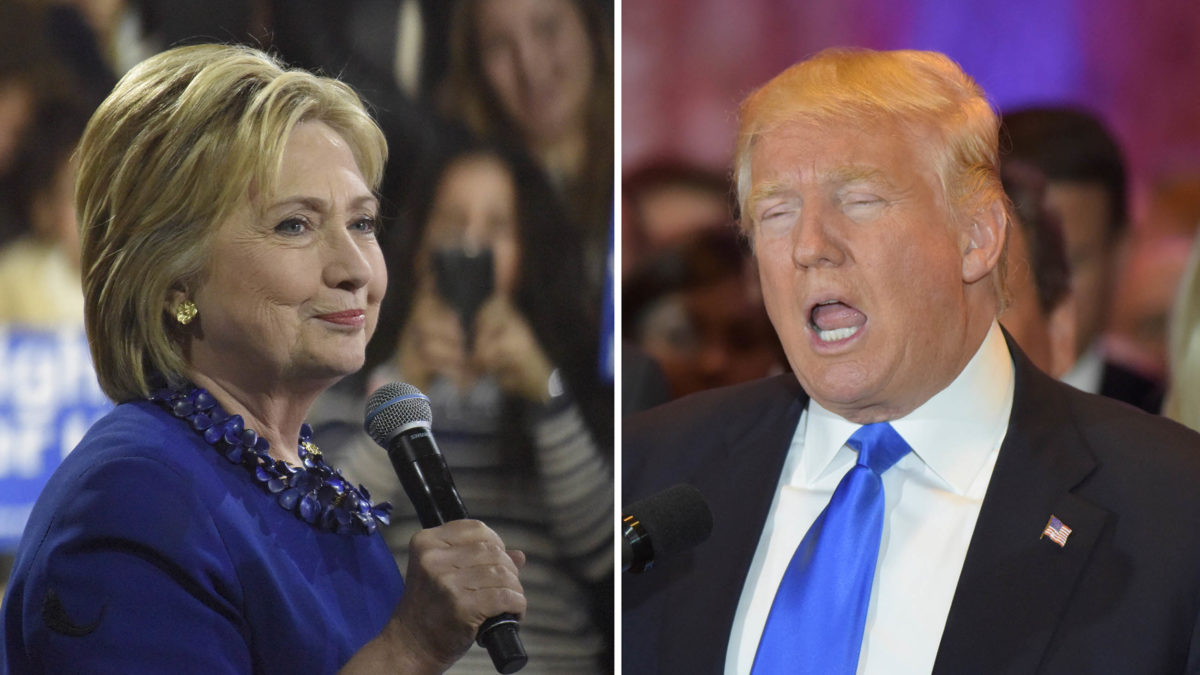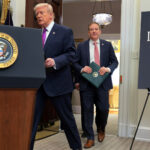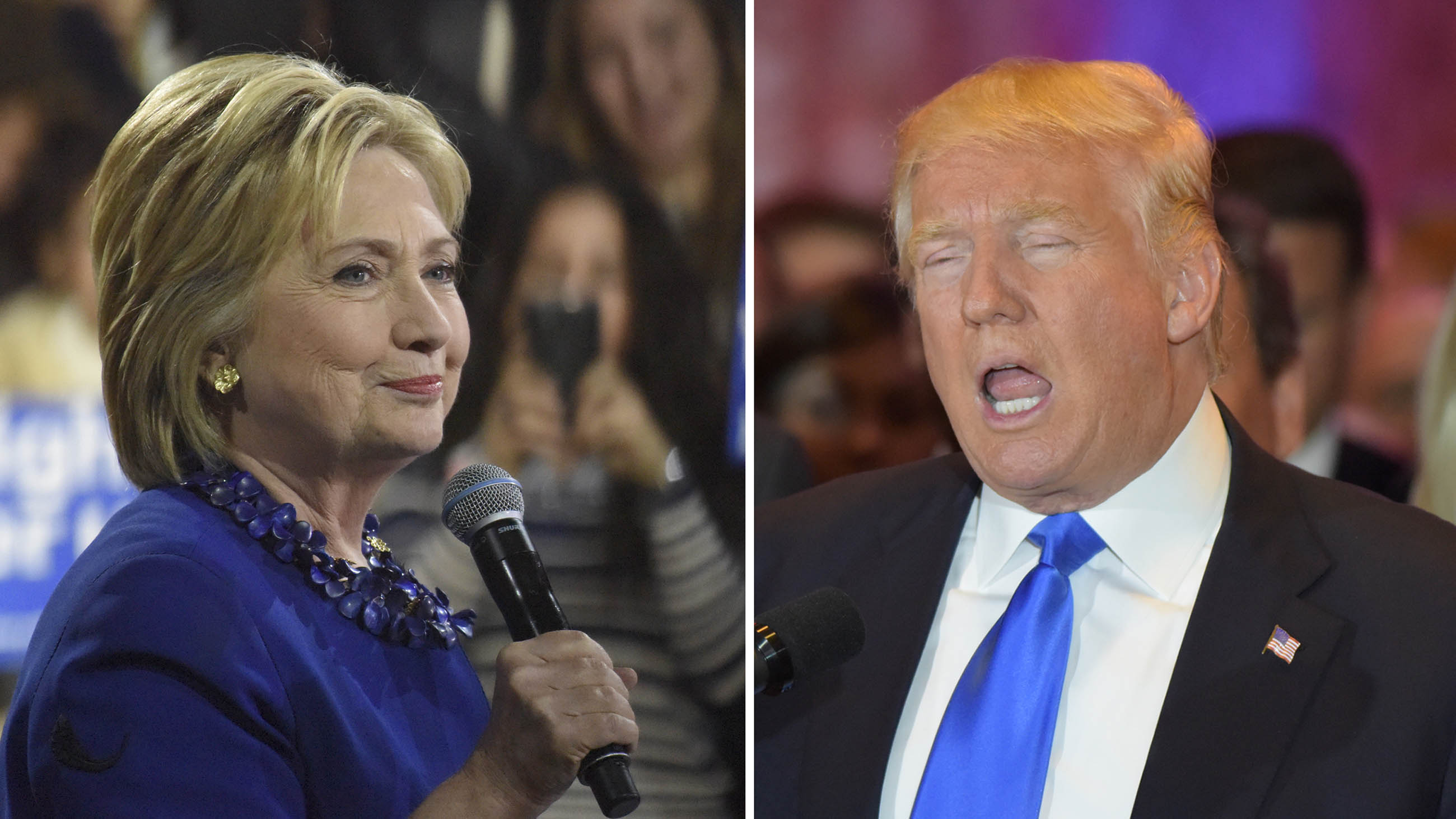Probing the Depths (or Shallows) of Candidates’ Views on Science and Policy
Democratic presidential hopeful Hillary Clinton and her Republican rival Donald Trump have clarified their views on a variety of scientific issues by answering 20 questions posed by ScienceDebate, an organization dedicated to stimulating discussion of science during the election cycle. The candidates outlined their platforms on issues ranging from technological innovation and climate change to funding for basic research and vaccines.

The candidates have weighed-in on a variety of science-related issues. Their views are quite different.
Visual: iStock.com
Many of Hillary Clinton’s answers – on the opioids epidemic, mental health reform, and tackling climate change – reiterate stances that she has articulated for months, and the substance of her answers tends to reflect information that appears on her website. She proposes, for example, a $10 billion program to combat drug addiction and provide substance abuse treatment. She has also pledged to focus on suicide prevention and mental health training for police, and to “slash greenhouse gas pollution over the coming years, as the science clearly tells us we must.”
Many of Donald Trump’s answers, meanwhile, reveal positions that he has rarely discussed on the campaign trail, while other responses seem to break with positions he has articulated in the past.
Two apparent priorities of a Trump administration would be freshwater infrastructure, which he called a “top priority,” and space exploration. “The cascading effects of a vibrant space program are legion, and can have a positive, constructive impact on the pride and direction of this country,” Trump declared. “Observation from space and exploring beyond our own space neighborhood should be priorities.”
This new emphasis on space exploration breaks with past comments, including his response to a 10-year-old who asked about his opinions of NASA. “Right now,” Trump said, “we have bigger problems. You understand that? We’ve got to fix our potholes.”
On the question of space exploration, Clinton said she wanted to “ensure that we have the world’s most exciting and advanced space program.”
In response to a question about Internet security and personal privacy, Trump suggested that “the United States government should not spy on its own citizens. That will not happen in a Trump administration.” But in the past, Trump has called for “closing the Internet up in some way,” and he has suggested that people “would be willing to give up some privacy in order to have more safety.”
Frugality is another major theme in Trump’s answers. On the question of improving federal research and the public health system to protect Americans from threats like antibiotic-resistant bacteria and pandemics like Zika, Trump advocated for prioritizing only the most cost-effective programs. “In a time of limited resources, one must ensure that the nation is getting the greatest bang for the buck,” he said. “We cannot simply throw money at these institutions and assume that the nation will be well served.”
Clinton, on the other hand, noted that “uncertain long-term budgets leave our public health agencies dependent on emergency appropriations.” She highlighted plans to boost public health preparedness by setting up a Public Health Rapid Response Fund “to quickly and aggressively respond to major public health crises and pandemics.”
But perhaps what most worries experts is Trump’s apparent inability to grasp the complexities of major scientific and public health issues facing the nation — and the world. The Republican contender mostly dodged a question on climate change, for example, and avoided his usual assertions that the issue is a “hoax.” Still, he argued that “there is still much that needs to be investigated in the field of ‘climate change,’” with quotation marks deliberately placed around the term — an apparent nod to skeptics who consider the notion of human-driven climate change to be dubious.
In a similarly superficial vein, Trump’s only concrete response to a question on the opioid crisis was to suggest that it can best be addressed by stopping “the inflow of opioids into the United States.” That’s a profound oversimplification of the issue, says Theodore Cicero, a professor of psychiatry at Washington University in St Louis and expert on substance abuse. “It is hard to see how re-emphasizing attempts to reduce supply will make much of dent in an important problem,” Cicero said. “We need to reduce demand [for], not simply the supply of these drugs.”
Cicero suggested that Clinton had articulated a much more clear-eyed view of the problem.
“As best I can tell,” he said of Trump’s platform, “he has a very limited policy.”
Green Party candidate Jill Stein also provided answers to ScienceDebate’s questions, while the Libertarian Party candidate, Gary Johnson, was notably absent from the forum.
Shawn Otto, who heads up ScienceDebate, suggested that overall, President Barack Obama provided more “specific and detailed” answers to ScienceDebate’s questions during his first run in 2008. But Otto also said he finds the contrasts between the candidates’ answers telling: “Clinton’s answers tend to be long and somewhat detailed, and Trump’s tend to be short and more rhetorical and sometimes self-contradictory,” he said. “But that seems to be pretty consistent with their overall campaign approaches and campaign style.”
For those science-minded voters reading through ScienceDebate’s 20 answers, Otto offers a suggestion: “Look for who seems to have put the most thought into their overall plan for tackling these issues,” he said. “They have profound impacts on voters’ lives.”










